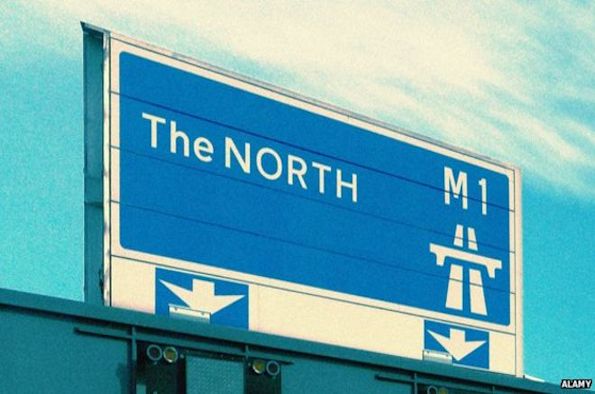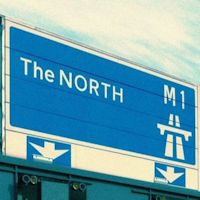
Dr Alex Nurse is a Research Associate in the University’s Department of Geography and Planning:
“Chancellor George Osborne has made his first major announcement since becoming first secretary of state – a position that essentially makes him Deputy Prime Minister in everything but title. Reflecting this boost to his political strength, it is not a coincidence that Osborne used his maiden speech to reaffirm his commitment to one of his major pet projects – city devolution.
Any major UK city that is prepared to sign up to the government’s agenda – and install a democratically elected metro-mayor – will now have the right to make its own decisions on housing, planning, policing and even health spending.
This multi-year financial settlement, worth an estimated £18bn by 2030 would, in the words of Greg Clark, the newly installed secretary of state for Communities and Local Government, allow “decisions to be made by the people of those great cities who know and love their area, rather than having to troop up to London and plead for crumbs from the table”.
Open to all?
While Manchester was the first city to sign up to receive these new powers ahead of the election, Osborne says the offer is open to any other major city – albeit insisting that he has no intention of imposing his plans on the unwilling.
Some cities are keen to get involved as soon as possible – Sheffield is already been tipped to follow Manchester. For other cities in the Northern Powerhouse – as the scheme has come to be known – the future is less clear. Some, such as Newcastle and Leeds, refuse to be drawn on their plans. Others, such as Liverpool want to be involved, but are being held back by political infighting.
So while Manchester goes ahead, we could be seeing a Northern Powerhouse defined by a three-tiered approach to local government. Those who want to be involved, those who want to but can’t, and those who want nothing to do with it.
The big gamble
At the same time, some question the practicability of the plans and what it actually means for the cities who take on the devolution challenge.
For instance, in an era of cuts to public services, will the new Manchester metro-mayor – pencilled to be installed in 2017 – have to take the brunt of criticism for an underfunded Manchester NHS? Given that Osborne’s plans currently offer no option for raising taxes locally, that mayor might struggle to do anything about holes in the budget.
It’s also worth thinking about the motivation behind the Northern Powerhouse. The original announcement came hot on the heels of the fiercely contested referendum on Scottish independence. It was seen by some as a sop to the northern cities, which saw powers being promised to their neighbours north of the border, and began to shuffle their feet.
In the aftermath of the election, which has seen the Scottish hand strengthened further, and with further concessions in the offing, it is not unreasonable to wonder if this project plays in assuaging those Northern cities that feel left out by the election of a majority Tory government that many were not expecting. It’s not too soon to start shoring up votes for 2020, after all – particularly in areas where UKIP has stolen Labour votes.
While the cities get to grips with the potential pitfalls for their new freedoms, the government may also need to tread carefully too. It will need to give the Northern Powerhouse enough independence to sate its desire to pull away from the clutches of Westminster, but not so much that the West Lothian question becomes the West Pennine Question.”
This article was first published in `The Conversation’. Academics who are interested in contributing to `The Conversation’ should contact the Press Team by emailing sarah.stamper@liv.ac.uk

There’s a strange quasi-Holy Roman Empire feeling to Osborne’s plan that deeply troubles me; it feels like he’s trying to make ‘Free Imperial Cities’ of the North. What happens to smaller but significant towns outside the main metropolitan areas? Will bigger cities be fighting to shift boundaries and unload troublesome, expensive satellites onto another authority?
These posts are really interesting, Alex.
I think devolution is a must. We have historically been ignored in Liverpool by the forever London centric government. However, as well as having the power to make decisions we should be able to spend our taxes in our area not to be spent down in London.
I think that there’s a lot of mileage in that, and that city leaders should think carefully about piling headlong into this without a full consideration of how this will play out in the longer term.
For what it’s worth, I think Manchester will make a relatively good fist of this based on its track record, although I do have concerns about the Health aspect (which caught even people who follow this closely by surprise). It’s the places with a less successful track record that give me pause, however. For every Barcelona there’s a Detroit, and I do worry that some areas which might lack the joined up working that has worked so well for Manchester over the last two decades might be setting themselves up for a particularly nasty fall…
The RSA City Commission Report ‘Unleashing Metro Growth’ (published Autumn 2014) in many ways provided the intelectual weight behind the Northern Powerhouse idea. This report always made clear that devolution would only be appropriate where authorities had a strong track record of governance and an ability to share appropriate risk. This put areas like Manchester with its strong track record of joint working (since the founding of AGMA in 1986) ahead of areas like the West Midlands or Merseyside which has a much weaker record of joint working. The question of fiscal devolution remains a challenge. Mechanisms such as Reformed Earnback in the Greater Manchester deal allows for areas to retain a proportion of the tax take that infrastructure investment will generate. Pilots such as the retention of business rates in Greater Manchester/Cheshire East, Peterborough/Cambridge show the direction of travel is to increase financial flexibility so as to allow decisions to be taken and funded at local level so as to drive economic growth. The debate around devolution now (as opposed to 30 years ago when it was driven by groups such as Charter’ 88) is as much about economics as politics. The proposal to devolve health to Greater Manchester reflects a view that there are economies of scale to be gained by joining health and social care and that local decisions on chronic (as opposed to acute) health issues such as obesity and dementia are more effective. My guess is most will adopt the mayoral model in exchange for game changing powers.
Osborne has a reputation as a strategic political thinker, but his announcement makes me think of the old saying ‘Beware of Greeks bearing gifts’. The carrot is increased autonomy for ambitious cities like Manchester although the number of Manchester business people pushing for this is a bit worrying. As the article suggests the city will be stuck with the responsibility to provide the services but not the power rise funds to cover shortfalls. I believe a further benefit from Osborne’s point of view is it will lead to the irreversible fragmentation of the NHS and it will be the predominately Labour controlled cities that have done it.
As I see it Labour nationally was ‘behind the curve’ on this although reports such as that on growth from Lord Adonis did recognise it. Labour cities are broadly in favour of the plan. There seems to be a general consensus that there are savings to be made from delivering and planning health and social care together. It makes no sense to bed block in expensive acute hospital beds simply because social care is not in place to discharge patients. There needs to be more of a systems approach to joined up service provision and maybe this is the start ?